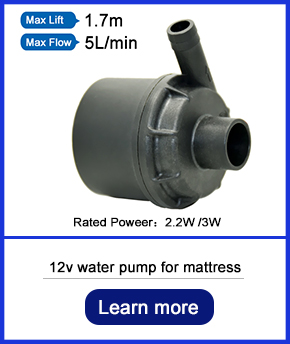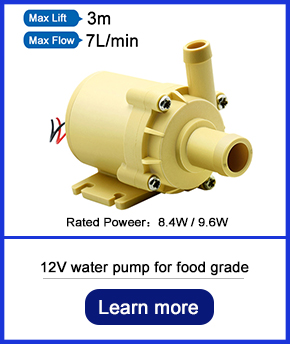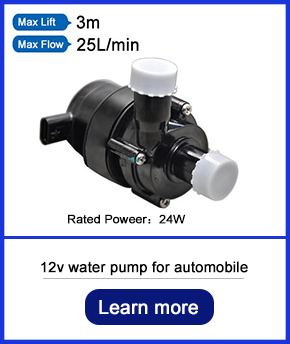Mini water pumps are widely used in various situations that require liquid transmission due to their small size, moderate power, easy installation and maintenance, and other characteristics. However, despite the many advantages of mini water pumps, their performance and reliability are inevitably affected by factors such as time, environment, and usage conditions during long-term operation and use, leading to problems such as performance degradation and frequent failures. Therefore, conducting aging tests on mini water pumps is particularly important.
 |  |  |
Aging testing is a method of simulating the environmental conditions of long-term product use to accelerate the aging process and evaluate its reliability and lifespan. For mini water pumps, the main purposes of aging testing are as follows:
1. Evaluate product lifespan: Through aging testing, various situations that may occur during long-term use of mini water pumps can be simulated, such as temperature rise, humidity changes, load fluctuations, etc., in order to predict their service life and provide important references for product design, production, and application.
2. Revealing potential problems: Aging testing can expose potential problems that may exist in the design, manufacturing, and use of mini water pumps, such as material aging, decreased sealing, motor wear, etc., which helps enterprises to identify problems in a timely manner and make improvements.
3. Optimizing product performance: By analyzing data from aging tests, key factors affecting the performance and reliability of mini water pumps can be identified, and product design and production processes can be optimized to improve the overall performance and quality of the product.
The aging test of mini water pumps usually includes the following aspects:
1. Temperature cycling test: Simulate the usage of mini water pumps in different temperature environments, evaluate their performance and reliability under temperature changes.
2. Humidity cycle test: Simulate the impact of humidity changes on mini water pumps, evaluate their corrosion resistance and sealing performance in humid environments.
3. Load fluctuation test: Simulate the operation of mini water pumps under load fluctuations, evaluate their stability and durability.
4. Continuous operation test: Let the mini water pump run continuously under specific conditions for a period of time, observe its performance changes and fault situations.
Aging testing of mini water pumps is of great significance:
1. Improving product quality: Through aging testing, problems can be discovered and solved, thereby improving the quality and reliability of mini water pumps, reducing failure rates and maintenance costs.
2. Meeting customer needs: High quality mini water pumps can meet various customer needs, improve customer satisfaction and loyalty.
3. Promoting enterprise development: Through aging testing, continuous improvement and optimization of product design and production processes can enhance the core competitiveness of enterprises and promote their sustainable development.
In summary, conducting aging tests on mini water pumps is an important means to ensure their long-term stable operation and reliability. Enterprises should attach importance to aging testing work, continuously improve testing levels and technical capabilities, and ensure that the quality and performance of mini water pumps meet customer needs.
Address:No.30, Dapu lndustrial Street, Changping, Dongguan, Guangdong, China
Tel: +86-186 7628 8117